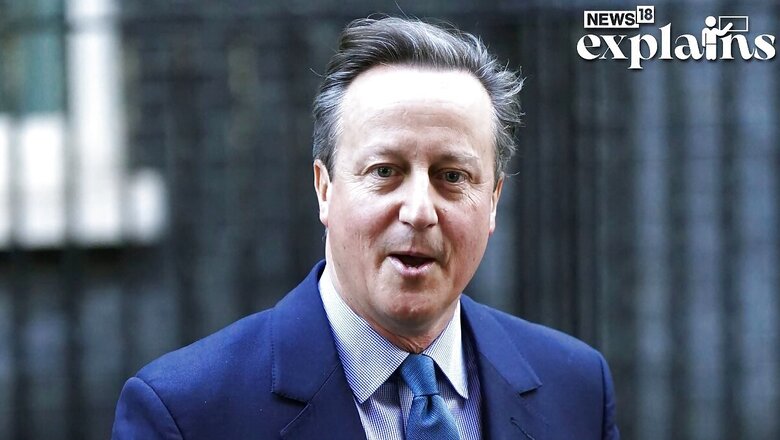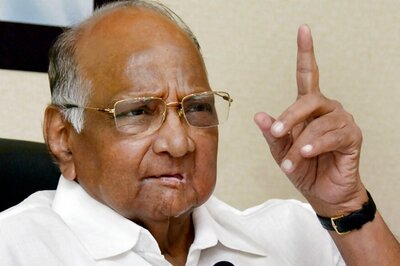
views
Former UK PM David Cameron made a surprise comeback to the British Cabinet after being appointed as the new foreign secretary in a cabinet reshuffle with elections in less than a year.
Cameron’s comeback came as Prime Minister Rishi Sunak sacked right-wing firebrand Suella Braverman as interior minister to try to assert his authority over the Conservative party, which trails the Labour opposition in polls after more than 13 years in power.
Sunak moved James Cleverly, a moderate who was foreign secretary, to the Home Office and confirmed that Jeremy Hunt would stay as chancellor.
The UK government has hailed Cameron’s political experience and said Sunak was building “a strong and united team" with a shuffle that tips the government’s balance from the Conservative Party’s hard right to the centre.
Cameron’s Comeback
David Cameron is a senior Conservative party leader and was also the British Prime Minister between 2010 to 2016. Like many other prominent politicians in UK, he studied at the elite Eton College before graduating from Oxford University.
He quit as PM in 2016 after losing the Brexit referendum and stood down as an MP the same year. He became mired in scandal in 2021, after lobbying the UK government for finance group Greensill Capital, which later collapsed and left his reputation tarnished.
In the 2010 general elections, David Cameron became the youngest British Prime Minister for 200 years, but the Conservatives did not win enough seats to govern alone and had to form a coalition with the Liberal Democrats.
The 57-year-old Conservative leader has kept a low profile since resigning in 2016, mostly confining himself to writing his memoirs and a number of business roles.
In 2019, Cameron published his autobiography “For the Record", partly written in a trendy “shepherd’s hut" in the garden of his country home. In the memoir, he said he had no regrets about calling the vote but that the tortuous Brexit negotiations had been “painful to watch".
Cameron’s foreign policy legacy is mixed, where as prime minister, he backed a NATO-led military intervention in Libya in 2011 that toppled Moammar Gadhafi and deepened that country’s chaos. In 2013, he tried and failed to gain Parliament’s backing for UK airstrikes against President Bashar al-Assad’s forces in Syria. He also announced a short-lived “golden era" in UK-China relations shortly before that relationship soured.
Significance of the Move
Cameron’s comeback comes after Rishi Sunak fired Suella Braverman for criticizing Pro-Palestine protests and also defied the Prime Minister after writing an article questioning the “double standards" of the police in its treatment of protests.
The Conservatives have been in power for 13 years, but opinion polls for months have put them 15 to 20 points behind the opposition Labour Party amid a stagnating economy, persistently high inflation, an overstretched health care system and a wave of public sector strikes.
His return also surprised even political commentators, as Sunak has political differences with Cameron, the latest one being the recent pitch at the Tory conference to end the “30-year status quo" in British politics. The move also indicates a move to the centre by Rishi Sunak and is likely to anger the right of the party.
The reshuffle indicates a shift towards securing the Tory base in southern blue wall seats in southern England where voters have traditionally voted for the Conservative Party, even if it costs them votes in the northern “red wall", that historically supported the Labour Party.
Rishi Sunak is also risking deepening divide among his MPs by bringing back Lord Cameron and firing Braverman, who is popular on the right of the Conservative Party. Conservative former Cabinet minister Sir Jacob Rees-Mogg said the Conservatives were “in danger of losing votes to the Reform party," according to BBC.




















Comments
0 comment